
82 posts
Latest Posts by winedarkfag - Page 2




questions
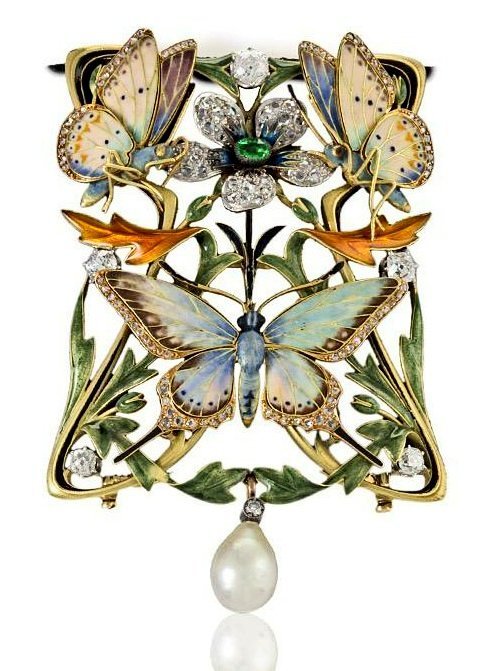
Gold and platinum Art Nouveau plaque-de-cou necklace from 1903 with an emerald and diamonds by Henri Dubret (1872-1947), Paris, France.
📸 Macklowe gallery
A man and woman wearing Mongolian (蒙古族) attire for a douyin trend. Ethnic Mongolians are one of 56 official ethnic groups in China.
Rabies is an incredibly lethal virus that kills more than 50,000 people globally each year. About 99% of those people who die from rabies were infected by the bite of a dog. This doesn’t mean that dogs are evil, or that they are disgusting, or that they should be eradicated from the planet to prevent the risk of disease transmission to humans. It does mean that we should do everything in our power to promote vaccination efforts, study disease transmission on a local and global scale, and find ways to prevent infected dogs from encountering and biting humans.
Okay, now are you ready to hear my biggest personal biology hot take?
This is pretty much how I feel about ticks carrying Borrelia burgdorferi (the bacteria that causes Lyme disease) and other arthropod disease vectors. Yes, these animals cause unbelievable suffering to humans by inadvertently transmitting disease, but that doesn’t mean they should be portrayed as evil or exterminated entirely from the environment. Ecologists have been speaking for years on how critical these species are within their established trophic webs, and how their removal could have devastating effects to many other organisms including humans. You can still be scared of or grossed out by these animals (very normal response to a potentially dangerous disease vector), but it’s important to understand that the best way for scientists to minimize the risk of these animals is NOT just eliminating them from the environment. No animal is evil or immoral for the ecological niche it fills, and encouraging a more nuanced understanding of these animals can arm us with better ways to minimize their negative impact to humans.

“I am a bit tipsy, leaves are falling, too” by Akiyama Iwao (1978)

As Above, So Below by Daniele Valeriani.
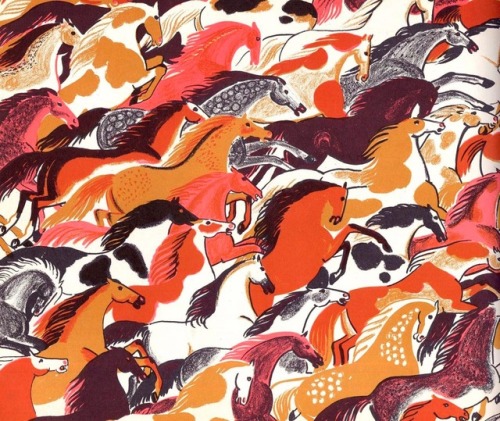
Dahlov Ipcar

by the sea

Fiona Finnegan
Crystal Ship, 2020
Oil and acrylic on wood

























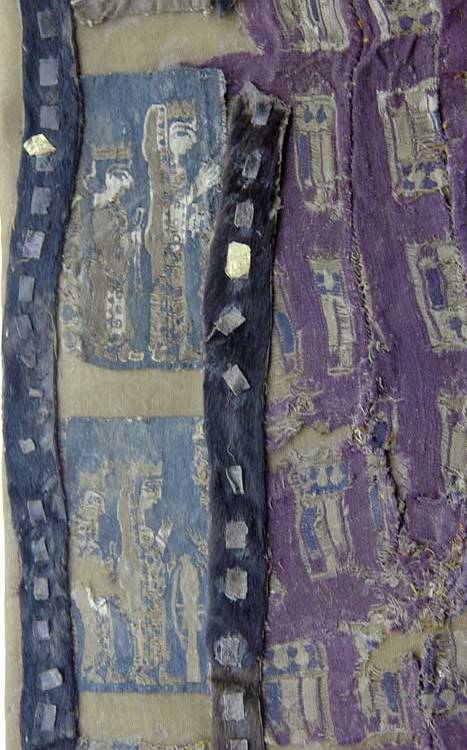




Scythian mummy tomb (Fifth Pazyryk Kurgan), Pazyryk culture 3rd C. BCE. More pictures on my blog, link at bottom.
"The pair were buried alongside nine horses, a huge cache of cannabis and a stash of priceless treasures - including the world's oldest carpet and an ornate carriage.
The man had curly hair and was aged between 55 and 60 when he died, whilst the woman was about ten years younger.
It is believed he was a chieftain or king of the Pazyryk civilisation, which lived in Kazakhstan, Siberia and Mongolia from the 6th to 3rd centuries BC."
...
"The attractive log cabin was a prefabricated construction by the prehistoric Pazyryk culture to house an elite tomb - in which was buried a mummified curly-haired potentate and his younger wife or concubine.
The mound in the Altai Mountains was originally 42 metres in diameter, and this tattooed couple went to the next life alongside nine geldings, saddled and harnessed.
The house itself, recently reconstructed, was not built as a dwelling but nevertheless is seen by archeologists as showing the style of domestic architecture more than two millennia ago.
This structure was the outer of two wooden houses in the large burial mound in the valley of the River Bolshoy Ulagan at an altitude of around 1,600 metres above sea level.
The core of the mound including the ice-preserved bodies of the elite couple had been excavated by Soviet archeologists in 1949, and many of the finds are on on display in the world famous State Hermitage Museum in St Petersburg.
As we have previously written, the pair - who owned perhaps the world’s oldest carpets - are currently undergoing an ultra modern medical scan to establish the cause of death, and reconstruct the appearance of the ancient pair, and to study the techniques of mummification in more detail.
Yet in 1949 this fascinating house was left in the permafrost ground - and only retrieved now from the so-called Fifth Pazyryk Barrow, to the excitement of archeologists.
Head of the excavation Dr Nikita Konstantinov from Gorno-Altaisk State University, was full of admiration about the skills of the ancient craftsmen.
‘We took out the log house and reassembled it right next to the mound,’ he said.
‘We made kind of express reconstruction, which made it possible to study the log house in detail.
‘Notches were made on each of its logs - building marks…’.
This was like IKEA instructions today for building their products, telling modern day excavation volunteers how to correctly construct the prehistoric building kit.
The result is seen in the pictures shown here.
‘This log house was first built somewhere away from the mound, then it was dismantled, brought and reassembled in the pit,’ said Dr Konstantinov.
‘Today we build in similar way, using Roman numerals, as a rule.
‘In those times they simply made different numbers of notches.’
The archeological team followed the code left by the ancient craftsmen and reassembled the house without problems.
‘The Pazyryks knitted the corners of the building in a masterly way and chopped the attachment points of these logs.
‘They fitted very cleanly….
‘When we built the log house and began to measure the height, it turned out that the height difference in the angles is only one centimetre.’
In modern constructions, a difference of 7 cm is allowed which showed how skilful were the ancient craftsmen.
He said: ‘This is a funerary structure, but we can say with a high degree of probability that the log cabin was created in the image and likeness of the houses in which the Pazyryks lived."
-taken from siberiantimes and thesun


Виктор Цой / Кино

Hades’ kids on their way to fuck your shit up


Mushroom hair pin

~ Bronze left foot with traces of sandal straps.
Period: Imperial
Date: A.D. 1st-2nd century
Culture: Roman
Medium: Bronze




Figurine of a Persian man 500-300 BCE
"The Persian nation contains a number of tribes as listed here. ... : the Pasargadae, Maraphii, and Maspii, upon which all the other tribes are dependent. Of these, the Pasargadae are the most distinguished; they contain the clan of the Achaemenids from which spring the Perseid kings. Other tribes are the Panthialaei, Derusiaei, Germanii, all of which are attached to the soil, the remainder—the Dai, Mardi, Dropici, Sagarti, being nomadic."
-Herodotus, The Histories, Book 1.101 & 125

Bad times








Illustrations of Epic of Gilgamesh by Marek Żuławski






Illustrations of Epic of Gilgamesh by Marek Żuławski (unfortunately censored)


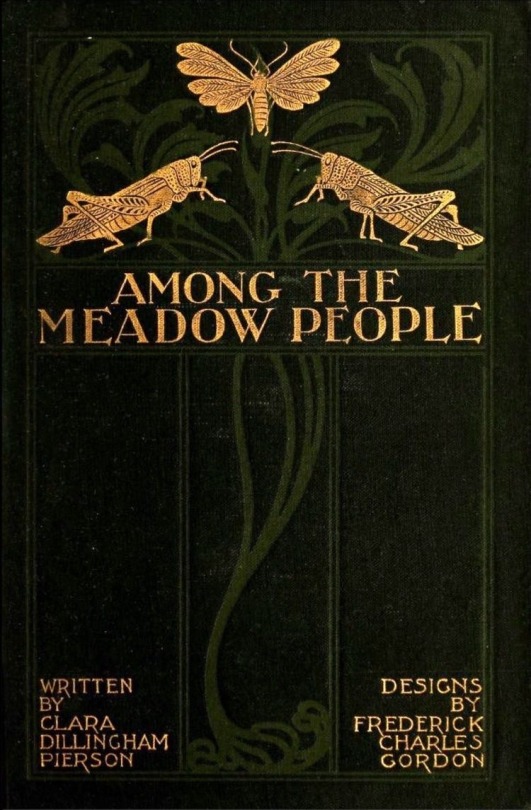

gothic garden entomology vintage book covers

“Šta će mi život bez tebe dragi, kad drugu ljubav ne želim da imam. - O majko moja koliko ga volim, samo je on u srcu mom.”
Plemić i njegova tajna Ljubav ⚜️GAY BOSNIAKS⚜️





Illustrations by Vyacheslav Nazaruk to the tales of Pavel Bazhov






I've been drawing too many pretty yung Voryns. Time to back my azz up into my comfort zone of old wrinkly bony old men! I think all these faces are fairly attractive. Do ya think the Nerevarine will still find his ex pretty? :3c
The ones based on the sleepers' ascent through corprus (including some of his brother Dagoths) are just for fun! I don't think he'd look like the sleepers since he's THE Dagoth. I do like to think he's desiccated his body through self-inflicted disease, but the corpus hits different when you're the dude who made it. There's something so fun about no physical eyes... or even a face in the case of the ascended sleepers!
The versions without lips appeal to me because his "body" hisses at you during his boss fight, yet his voice is loud and clear in your mind. His voice is just psychic emissions. While his "body", whether it's a projection or his true body, has its vocal cords rotted away from disuse, disease, and deformation. He ain't using his voice for no one but YOU, sweet Nerevar!
I think my personal headcanons veer towards him just looking really old and slightly burnt. Burnt from living in a volcano, or the Tribunal tossing his body in lava after killing him. But he can stretch his jaws to look like the toothy concept art that Mr. Kirkbride drew. Cuz I like teeth and tendons!
If the body you see is just a projection, why would he project himself all singed and corpsey and masked? Rather than an idealized form, like Vivec has created? Or any shapeshifting that Daedra may partake in?
Perhaps a projection from the soul can't hide the ugliness and sadness. He's been through a lot. He's died and rebirthed like 10 times. Be nice, even when he threatens to killy everyone.
Much to think about.


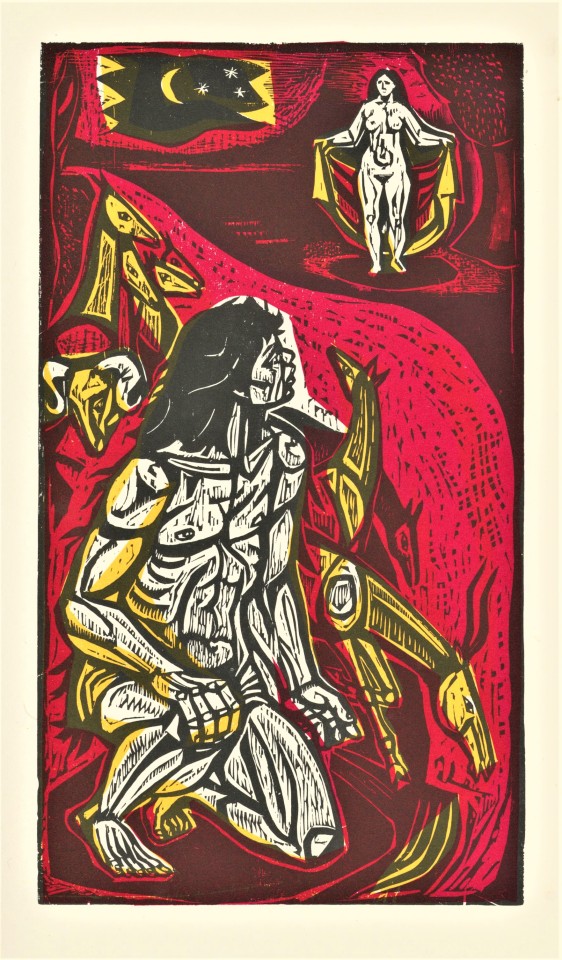
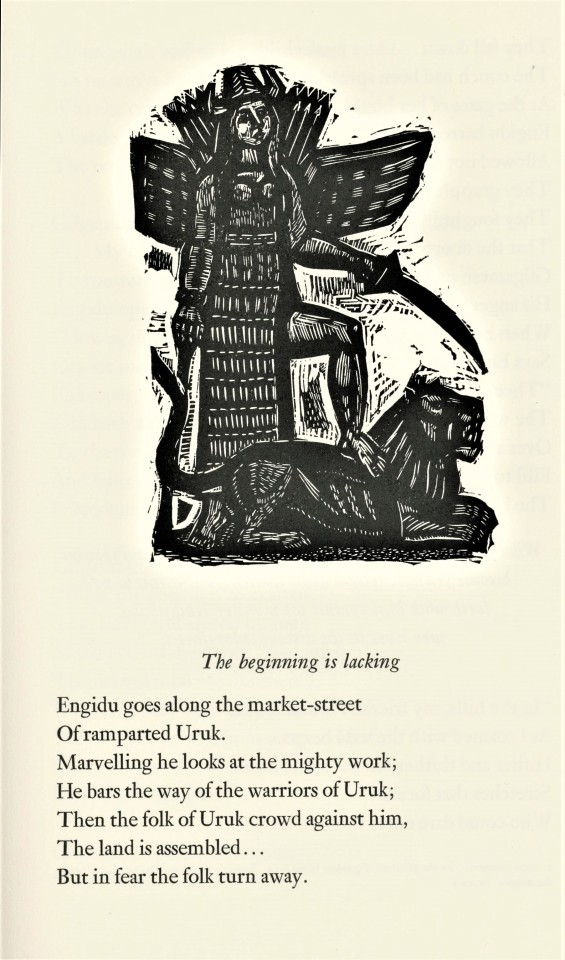
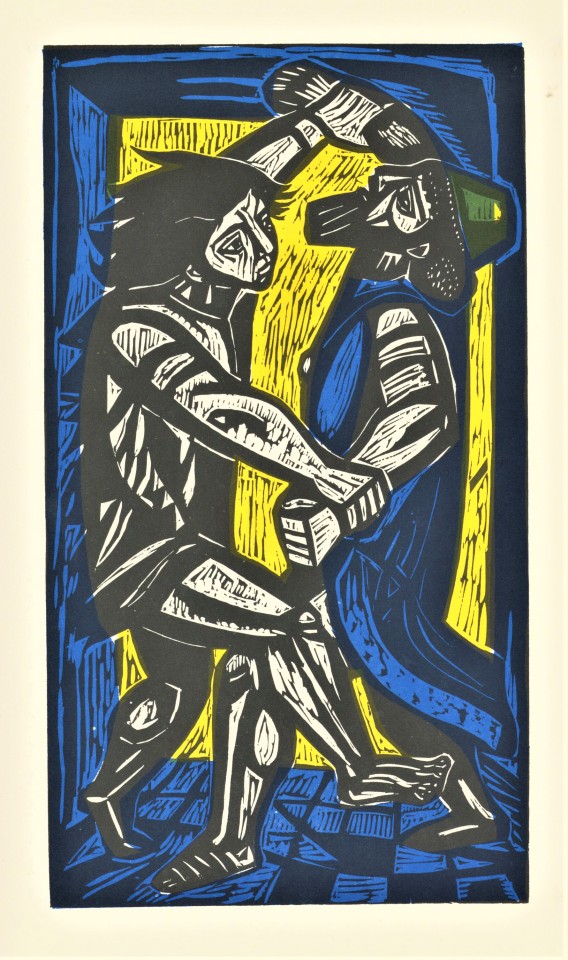

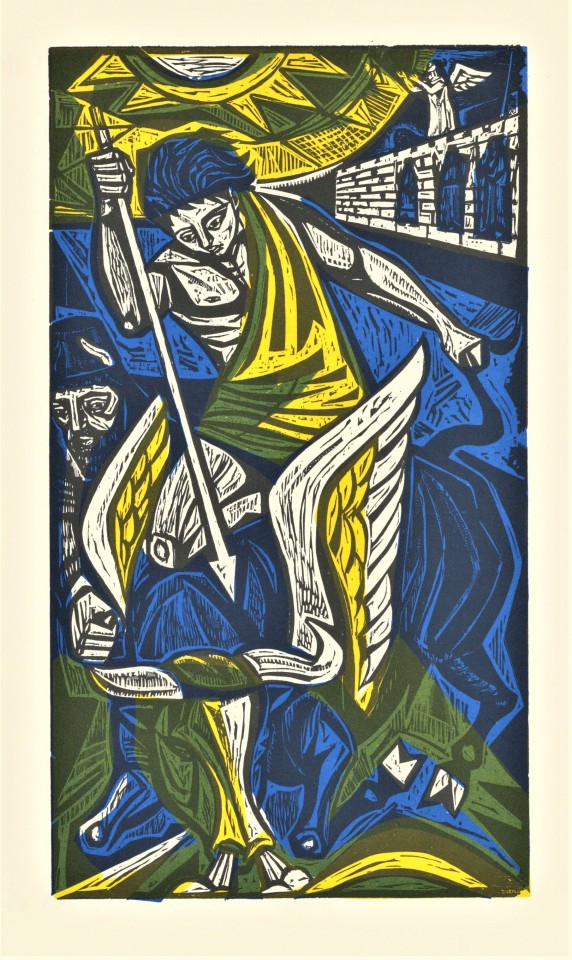

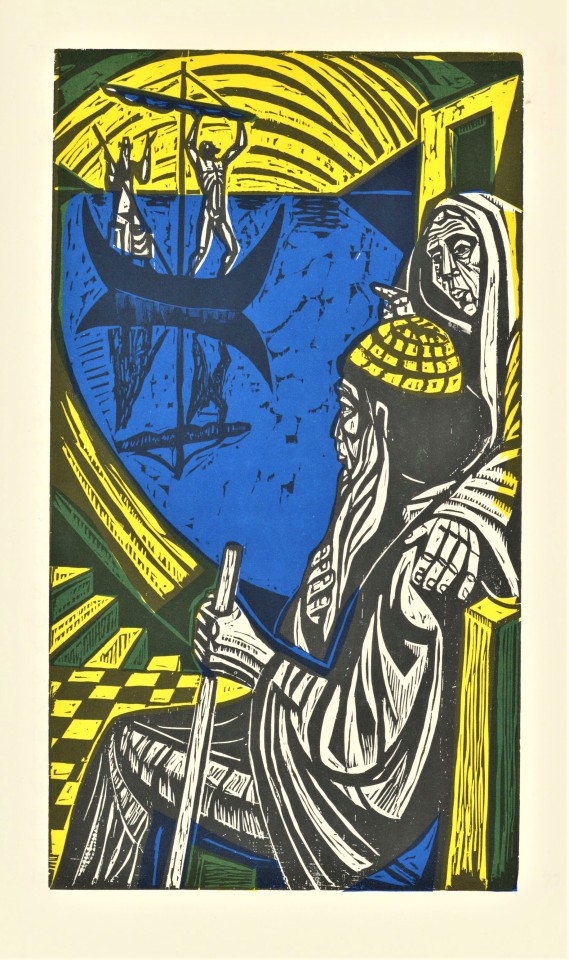

Staff Pick of the Week
A few weeks ago I read the Epic of Gilgamesh for the first time, and despite the fact that the origins of the story are probably from the mid-3rd millennium BCE, and the earliest cuneiform tablets we know the story from date from the late 2nd millennium BCE, the narrative’s emotional frame, and the frank depictions of sex, violence, fear, longing, and friendship, all felt remarkably contemporary to me. Just last week, Gilgamesh came up again in a discussion during a session of my course on the History of Books and Printing. Since Gilgamesh has had a recurring presence in my life this past month, I’ve decided to highlight some images and text from our copy of the Limited Editions Club production of Gilgamesh, translated by William Ellery Leonard and printed in 1974 at The Stinehour Press in Lunenberg, Vermont, in an edition of 2,000 copies.
The book includes nine bold three-color woodcuts and seven black-and-white woodcuts and linocuts by the American visual artist Irving Amen (1918-2011), who also signed the entire edition. The text is printed in the Club’s proprietary eighteen-point Janson type, with thirty-six-point Trump Gravure wedge-serif capitals for the titles. The woodcuts beautifully capture every significant scene in the epic. Click on the images to view the captions.
View more posts on the Limited Editions Club.
View more posts with woodcuts.
View more of our Staff Picks.
– MAX, Head, Special Collections
pov: you’re Paris and you must choose
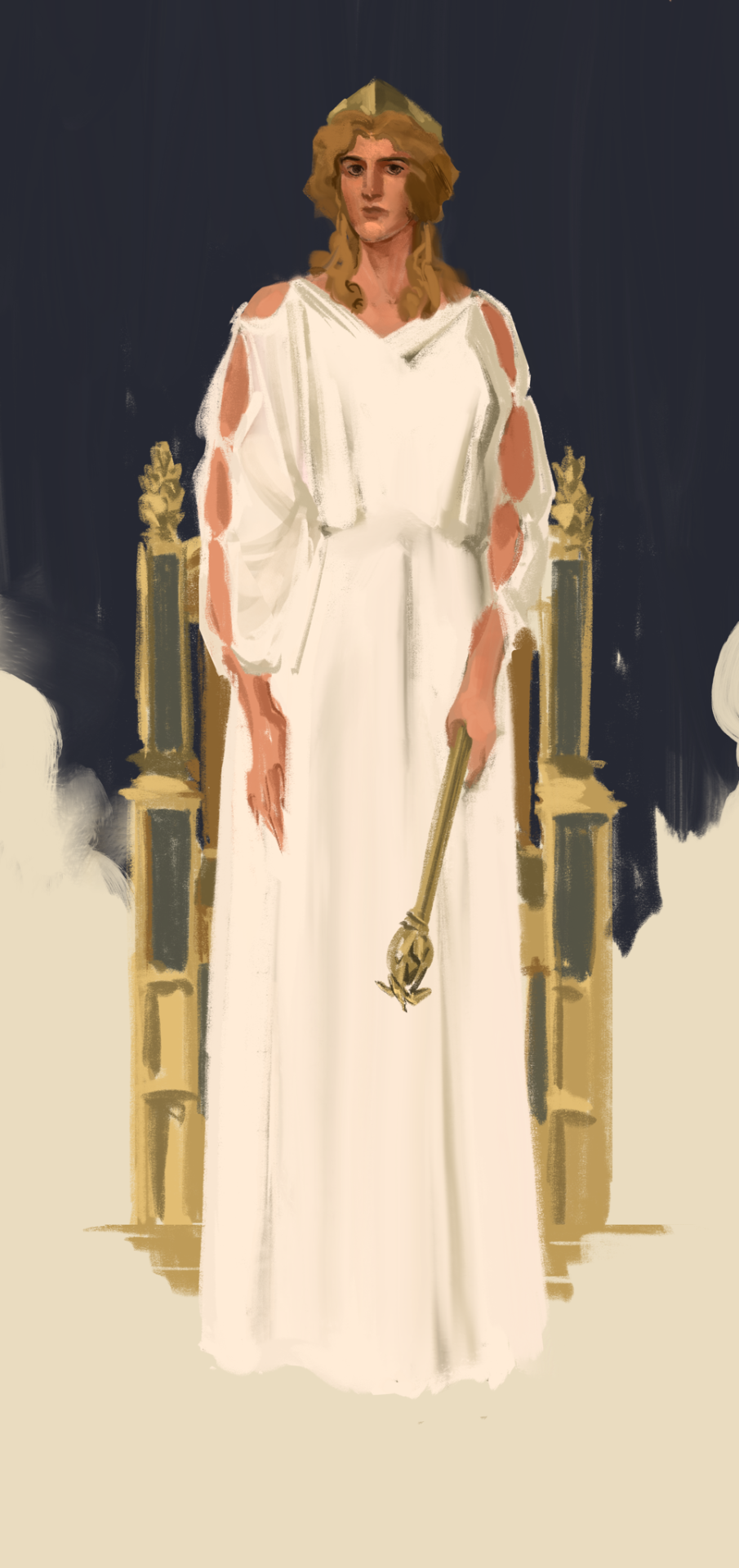
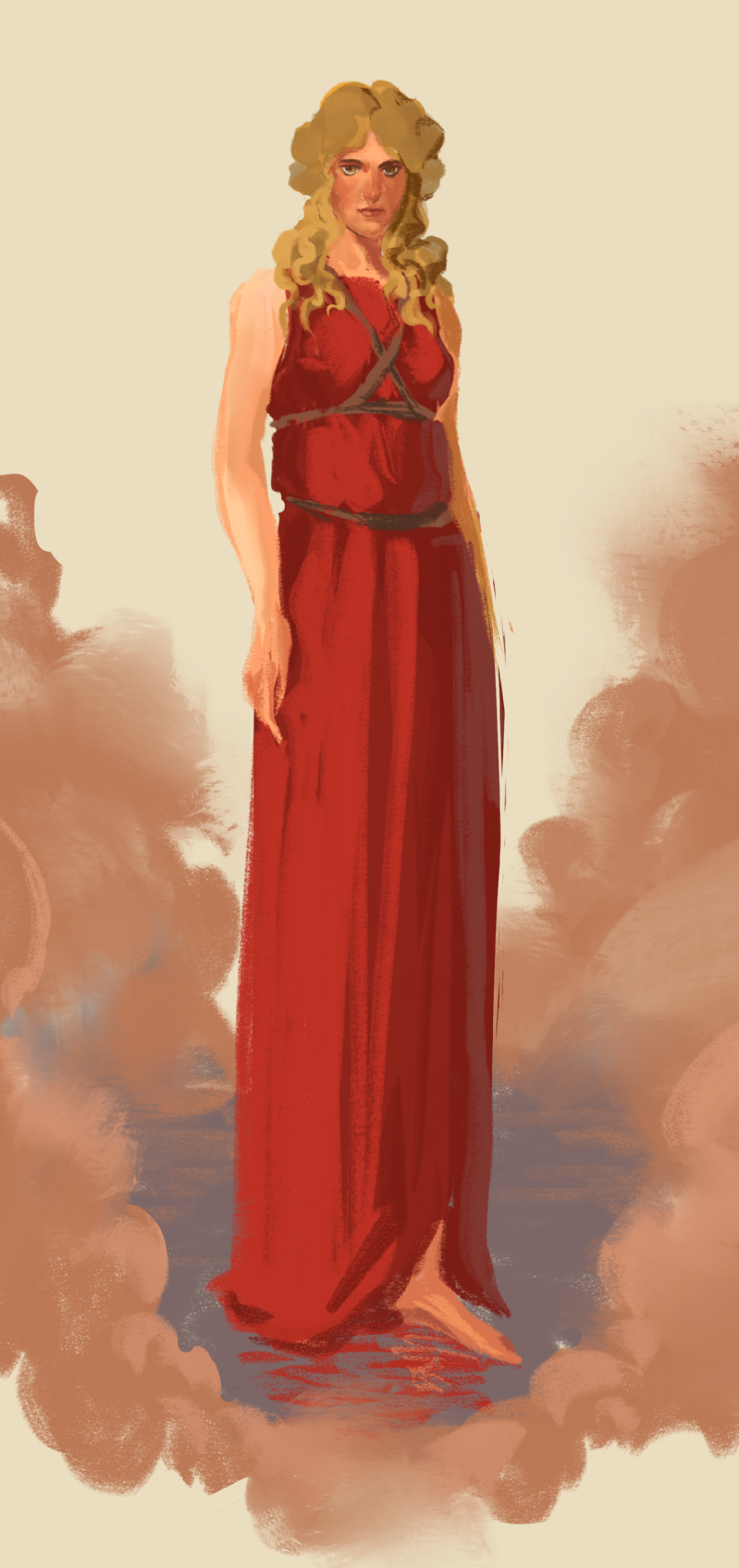
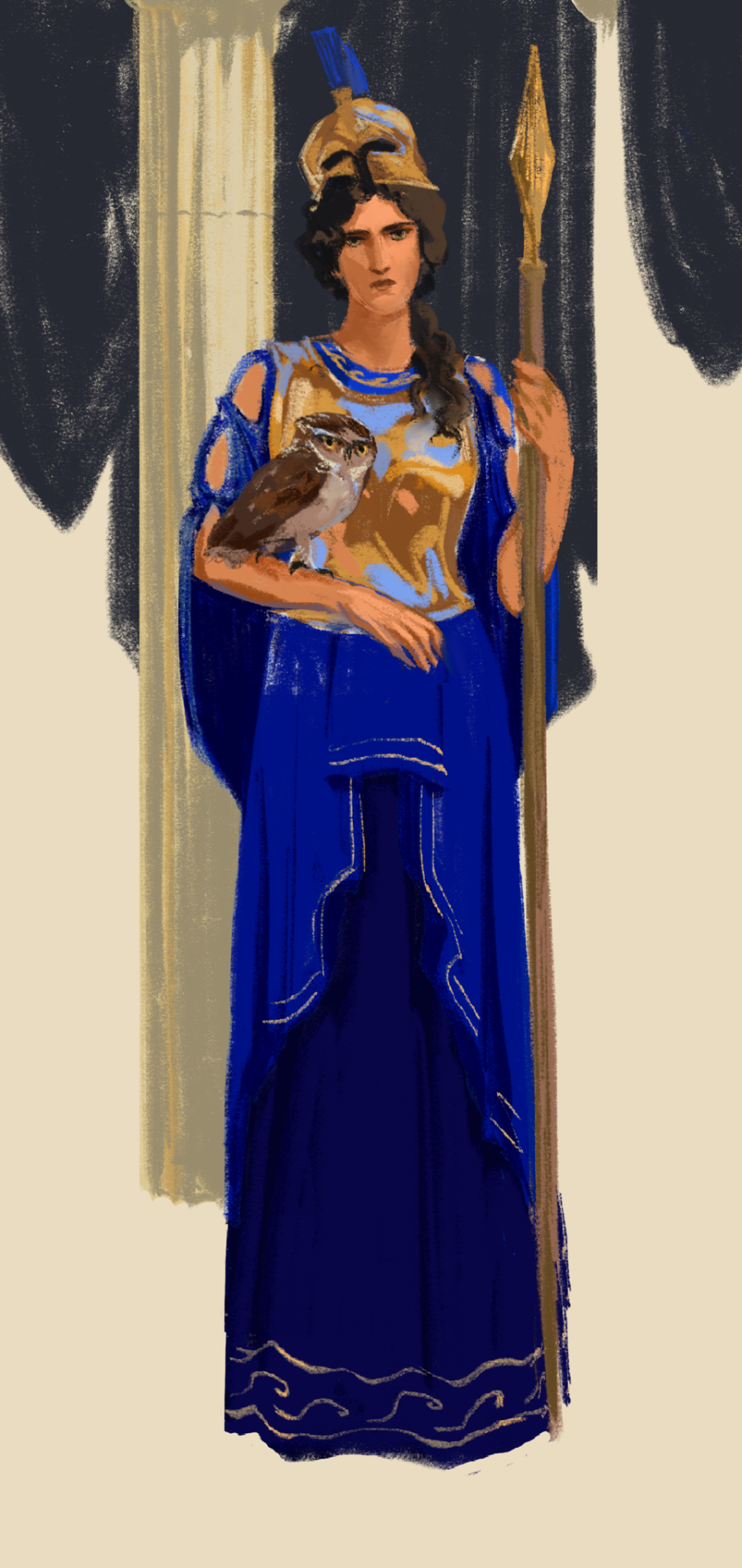






Illustrations for Russian fairytales by Ivan Bilibin
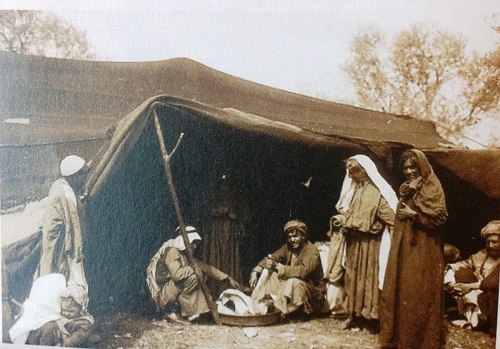






Domari people (middle eastern romani) of Palestine
(1) A domari tent in Jerusalem near the Damascus Gate, 1920s
(2) A domari street circus in Jerusalem, 1905
(3) Domari dancer and musician in Mandatory Palestine, 1930s
(4) Domari settlement at the north of the Damascus Gate, 1914
(5) Domari musician and dancers in Galilee, 1920s
(6) Domari women and children in a domari settlement in Mandatory Palestine, 1920s
7) Domari woman with seashells in the hand to tell fortune, near the sea of Galilee in Palestine, 1930s


so says the greek chorus










Quotes: 1.) Louise Glück, From Averno; “Blue Rotunda” 2.) Ocean Vuong, from On Earth We’re Briefly Gorgeous 3.) Clarice Lispector, from Selected Crônicas; “Excess and Privation ,” 4.) Rachel Cusk, on the reception of Aftermath, as cited in Olivia Sudjic’s Exposure
Art: 1.) Daniel F. Gerhartz 2.) Adrian Ghenie, Henrik Uldalen 3.) Helene Delmaire, Glenn Brown 4.) Alexandra Levasseur
i know we’re both just messing around pretending to be whole but look at me. if the train was coming would you move. if the ground was falling from under your feet would you even notice or would it just be another tuesday for you. if somebody stabbed you could it hurt worse than you already do. what i’m saying is that i love you but i think we both drive over the speed limit when it’s raining. what i’m saying is that i want to hold your hand and i understand about how you sometimes have to sit down in the shower. what i’m saying is that i’m here for you and if the train comes please move.